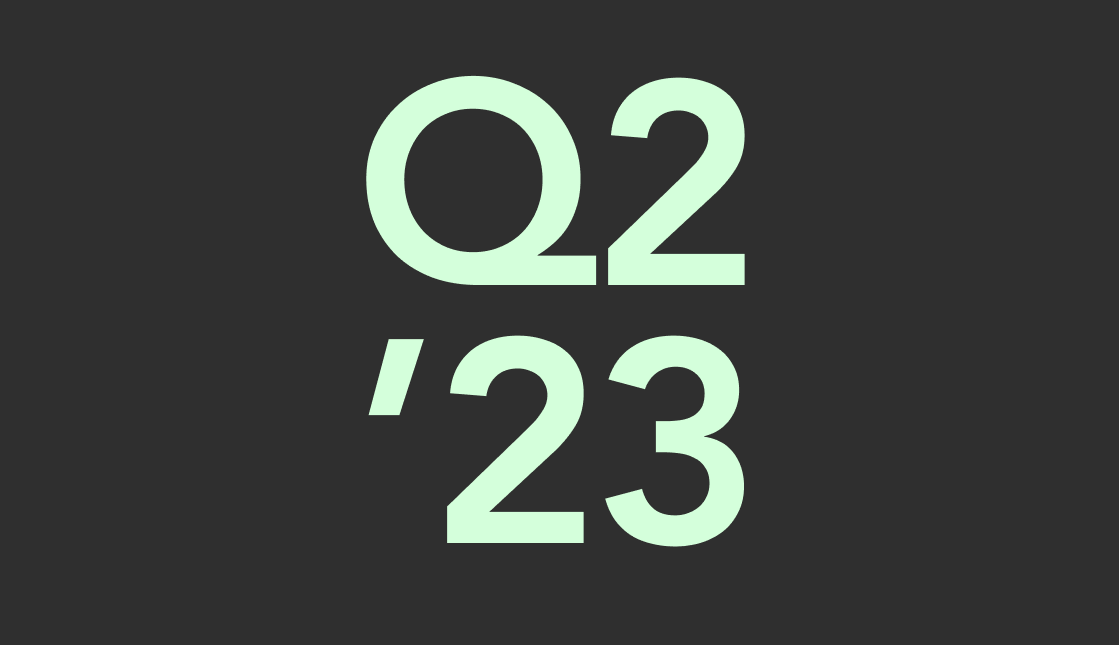Q2/23 – Part of a bigger picture


Subscribe now! Receive 15% discount.
Don’t miss out – get 15% off your first order when you join the newsletter. It’s fast, free, and kinda smart.
You're now subscribed!
In this article:
Q2 Sustainability Summary
Part of a bigger picture
The second quarter of the year is always exciting because we get to celebrate Earth Day. For those who might have already forgotten, it’s on April 22. For this occasion, Packhelp offset the carbon footprint of all our customers’ orders. Get to know what project we decided to support and how much CO2 we actually made up for in this summary.
Apart from celebrating, we had a very important task that we set ourselves at the beginning of the year. Namely, to share with you our progress report. We tracked all the metrics and statistics to give you a transparent and complete update. Read on to discover the highlights that have helped us get closer to realising our sustainability strategy goals.
Last but not least, we’re about to submit our first COP - communication on progress - as proud members of the United Nations Global Compact initiative.
It is all a part of a bigger picture to conduct our business more and more consciously.
Table of contents:
- Earth Day celebration
- Our Progress Report
- United Nations Global Compact initiative
Earth Day Celebration
365 days a year of a better alternative.
Sustainability is not a one-off. It's an ongoing process and commitment from us, as well as from our customers. We, as a business, have the power to further impact and educate their purchases.
We wanted to make it clear for the customers who are not sustainability experts, to choose the most sustainable products from our portfolio through an easy Eco Choice label, because these products are always available in our shop. To strengthen the message, on Earth Day, we offset all the carbon footprint produced by these products for every customer with a golden standard project in carbon offsetting.
Supporting golden standard projects
We have purchased 30 Verified Emission Reductions (VER’s) with the Gold Standard Project, which equals to saving 30 tonnes of CO2 emissions from being released into the atmosphere. We chose to support the Improved Cookstoves for Schools and Institutions in Uganda project. Our purchase (as well as pricing) can be verified on the Gold Standard Impact Registry.
Why are improved cookstoves important? While evaluating Shimoshi’s project, we looked at tangible benefits and impacts on the ground it has. It addresses multiple environmental and social issues, such as deforestation, air pollution, and health-related problems for children and cooks, while also empowering women and children in Uganda. Moreover, it wouldn’t have been possible if not for the funds generated through carbon credit sales.
You can read more about this project and its impact here
As part of the celebration, we also organised a quiz in the office and, we must admit, we are very proud of the level of knowledge our employees have. The questions were not easy, but at least half of the participants got each one of them right.
- How many kilograms of food waste per inhabitant were generated in the EU in 2020? 131kg and 77% of Packhelpers knew the right answer
- What was the recycling rate for plastic packaging in Europe in 2018? 42% with a rate of 67% correct responses.
- How many times can a glass bottle be recycled? Infinite amount of times of course, and 77% of participants knew that.
The winners won books on vegan cooking, urban activism and balcony gardening.
Our Progress Report
Becoming a more conscious business starts with having a long-term plan that is consistently executed. You can find both - the strategy we adopted and progression towards our goals - in our Progress Report. There’s always work to do and ways to improve. That is why each year we are looking closely at our metrics, and we invite you to do the same. Especially now, when our progress report for 2022 is out!
You can find the full report here.
A quick reminder, in order for us to continue improving for our customers, employees and the environment, we focused our work around three main pillars of responsibility: People, Planet and Purpose.
We’re extremely proud to have launched several exciting initiatives in 2022.
🌳 Calculating the carbon footprint of the best-selling products.
🌳 Obtaining Made-for-Recycling certificates.
🌳 Adding FSC® certification to our editor.
🌳 Conducting sustainability assessments for suppliers, representing 96% of the relevant sourcing spend.
United Nation Global Compact
The United Nations Global Compact is a voluntary initiative of the United Nations to get businesses and firms worldwide to adopt sustainable and socially responsible policies, and to report on their implementation. The companies can join the program if they agree to set in motion changes to its business operations so that the UN Global Compact and its Ten Principles become part of strategy, culture and day-to-day operations.
Ten Principles
The assumption of the UNGC is that responsible businesses enact the same values and principles wherever they have a presence. So by incorporating the Ten Principles companies are not only upholding their basic responsibilities to people and planet, but also setting the stage for long-term success. Sounds perfect to us! So what are these 10 principles?
Human Rights
- Principle 1: Businesses should support and respect the protection of internationally proclaimed human rights; and
- Principle 2: make sure that they are not complicit in human rights abuses.
Labour
- Principle 3: Businesses should uphold the freedom of association and the effective recognition of the right to collective bargaining;
- Principle 4: the elimination of all forms of forced and compulsory labour;
- Principle 5: the effective abolition of child labour; and
- Principle 6: the elimination of discrimination in respect of employment and occupation.
Environment
- Principle 7: Businesses should support a precautionary approach to environmental challenges;
- Principle 8: undertake initiatives to promote greater environmental responsibility; and
- Principle 9: encourage the development and diffusion of environmentally friendly technologies.
Anti-Corruption
- Principle 10: Businesses should work against corruption in all its forms, including extortion and bribery.
Communication on Progress
Each participant is required to communicate on an annual basis about progress in the form of a Communication on Progress (CoP) document, which summarises the efforts to implement Ten Principles and support for societal priorities. The CoP is publicly available for everyone, including company's stakeholders, on each company’s profile page. If a company fails to submit its CoP by 31 December, they will be delisted from the UN Global Compact for ‘failure to communicate’ and publicly displayed.
Packhelp joined UNGC in December, so it is our first official CoP. Keep your fingers crossed for us!
Q2 was a lot of fun and even more responsibilities. But we know that there are goals that we, our customers and stakeholders set together, which makes this road even more satisfying. And, if we can make a positive impact, even if it's just a small one, it is worth it.









